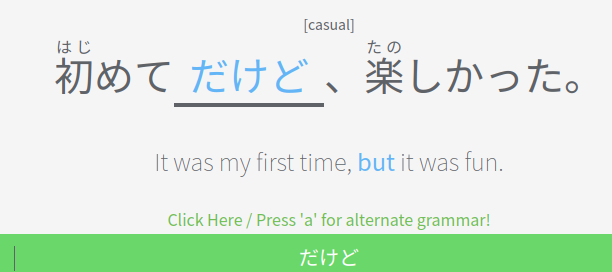I also encountered some instances in which けど with the meaning of “but” doesn’t quite suit.
In this video the other uses of けど made much more sense. けど Is Not Always But
Quick Summary:
けど as a particle marks the situation (A) and transferring to the main point of the sentence (B).
Example:
皆さん、明日田中さんの誕生日会があるんです(A)けど、行きますか(B)?
→ The situation is that tomorrow is Tanakas birthday (Situation)[けど], do you want to go there (Main Point).
Effect: Before make a decision, here is the situation we are talking about.
Another Example:
さっき田中さんにメロンもらったんだけど、食べる?
→ Tanaka gave me a melon just now (A → Situation)[けど], do you want to eat it? (B → Main Point)
I think that also this concept applies pretty well to the translation of “but” and helped me a lot understanding these occurrences in the examples above or if someone picks up the phone and says “[Name], だけど” like stated in the posts above.
田中だけど(A → Situation)、(何か(用が)ありますか(B → Main Point))?
It’s Tanaka, (do you need something)?
→ establishes shared context to the caller and receiver of a call
Just wanted to share, because i found it incredible useful for me 




